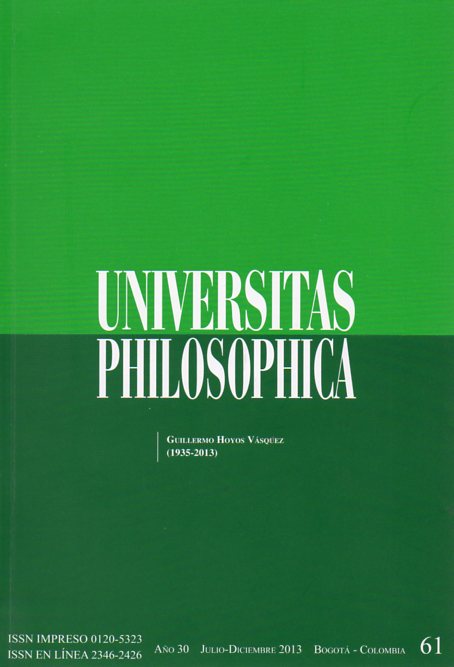Abstract
Contrary to some interpretations that point towards a non-linear development of Husserl’s thought with different stages (from a descriptive psychology to a transcendental phenomenology and to an intersubjectivity based on the Life-world) we want to show how his fundamental philosophical directions were already present at the beginning of his work: the need to rethink the foundations of science, the meaning of objectivity, the struggle against empiricism. We will direct our attention to the concept of normality as a way to address in a non-reductionist approach the problem of intersubjectivity, that is, as constitutive of myself through the other, as a result of my fundamental abnormality, and also as related to the development of the concept of the life-world so as to establish the ground for a comparison with Guillermo Hoyos’ interpretations of Husserl in his book Phenomenological Investigations.
This journal is registered under a Creative Commons Attribution 4.0 International Public License. Thus, this work may be reproduced, distributed, and publicly shared in digital format, as long as the names of the authors and Pontificia Universidad Javeriana are acknowledged. Others are allowed to quote, adapt, transform, auto-archive, republish, and create based on this material, for any purpose (even commercial ones), provided the authorship is duly acknowledged, a link to the original work is provided, and it is specified if changes have been made. Pontificia Universidad Javeriana does not hold the rights of published works and the authors are solely responsible for the contents of their works; they keep the moral, intellectual, privacy, and publicity rights.
Approving the intervention of the work (review, copy-editing, translation, layout) and the following outreach, are granted through an use license and not through an assignment of rights. This means the journal and Pontificia Universidad Javeriana cannot be held responsible for any ethical malpractice by the authors. As a consequence of the protection granted by the use license, the journal is not required to publish recantations or modify information already published, unless the errata stems from the editorial management process. Publishing contents in this journal does not generate royalties for contributors.


